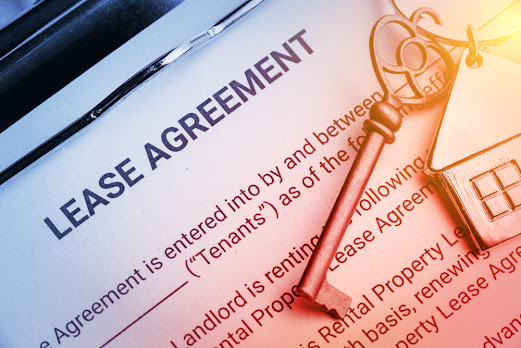Unlocking Lease Negotiation Success: Mastering the Art of Tenant-Landlord Agreements
Introduction
Securing a favorable lease agreement is crucial for tenants looking for a new space to call home or a commercial space for their business. Negotiating the terms of a lease agreement can help you establish a mutually beneficial relationship with your landlord, ensuring that your needs and rights are adequately protected. In this article, we will explore essential tips for negotiating a lease agreement that will empower you to navigate the process effectively and achieve a favorable outcome.
Understanding Your Needs and Priorities
Before entering into lease negotiations, it is vital to have a clear understanding of your needs and priorities as a tenant. Assessing your requirements, such as the desired location, space size, and amenities, will enable you to articulate your expectations more effectively during negotiations. Additionally, determining your budget constraints will help you gauge the affordability of the property and make informed decisions during the negotiation process.
Researching the Rental Market
To negotiate successfully, it is crucial to gather relevant information about the rental market in your desired location. Analyzing local rental trends will provide you with valuable insights into market rates, vacancy rates, and the demand for rental properties. By comparing rental prices and amenities, you can assess the competitiveness of the property you are interested in and make informed arguments during the negotiation process.
Preparing a Strong Proposal
To establish a strong position during lease negotiations, it is important to prepare a well-structured proposal that showcases your suitability as a tenant. Start by gathering necessary documents, such as proof of income, credit history, and references. Highlighting your strengths, such as a stable income source, positive rental history, or a strong business plan, will help you demonstrate your reliability and commitment as a tenant.
Negotiating Key Lease Terms
During lease negotiations, certain terms carry more weight than others. Pay close attention to key terms such as rent and lease duration, as these factors directly impact your financial obligations and the stability of your tenancy. Consider proposing a reasonable rent amount based on your research of the rental market. Additionally, discussing maintenance and repair responsibilities, pet policies, and additional fees, if applicable, will ensure that you address potential concerns and reach mutually agreeable terms.
Seeking Professional Guidance
If you find the lease negotiation process overwhelming or complex, it may be beneficial to seek professional guidance. Consulting a real estate attorney who specializes in lease agreements can provide you with valuable legal advice and help you understand the intricacies of the lease contract. Engaging a tenant representative or a real estate agent experienced in tenant representation can also be advantageous, as they can advocate for your interests, negotiate on your behalf, and provide valuable insights throughout the process.
Finalizing the Lease Agreement
Before signing the lease agreement, it is crucial to review the document carefully. Pay close attention to the terms you negotiated and ensure that they are accurately reflected in the final agreement. If you come across any ambiguous terms or provisions that you do not understand, seek clarification from your landlord or legal counsel. By conducting a thorough review, you can avoid potential disputes and ensure that you are entering into a lease agreement that aligns with your expectations.
Conclusion
Negotiating a lease agreement requires thorough preparation, effective communication, and a clear understanding of your rights and priorities as a tenant. By understanding your needs, conducting research, preparing a strong proposal, negotiating key lease terms, seeking professional guidance when necessary, and carefully reviewing the final lease agreement, you can navigate the negotiation process with confidence. Remember, a well-negotiated lease agreement sets the foundation for a positive tenant-landlord relationship and provides you with the peace of mind you deserve as you embark on your new lease term.
Frequently Asked Questions
- Q: Why is negotiating a lease agreement important?
- A: Negotiating a lease agreement allows you to secure favorable terms that meet your specific needs and protect your rights as a tenant.
- Q: What should I consider when determining my budget constraints?
- A: When determining your budget constraints, consider your income, expenses, and financial goals to ensure that the rental payments are affordable and sustainable for you.
- Q: How can researching the rental market benefit me during negotiations?
- A: Researching the rental market helps you understand current rental trends, compare prices and amenities, and make informed arguments to negotiate for a fair rental rate.
- Q: What documents do I need to prepare for lease negotiations?
- A: Prepare documents such as proof of income, credit history, and references to demonstrate your financial stability and reliability as a tenant.
- Q: What are some key lease terms I should focus on during negotiations?
- A: Key lease terms to focus on include rent amount, lease duration, maintenance and repair responsibilities, pet policies, and additional fees if applicable.
- Q: Should I propose a rent amount lower than the advertised price?
- A: It can be beneficial to propose a reasonable rent amount based on your research of the rental market, but be prepared to negotiate and find a middle ground.
- Q: How can a real estate attorney help me during lease negotiations?
- A: A real estate attorney can provide legal advice, review the lease agreement, and help you understand your rights and obligations as a tenant.
- Q: What are the advantages of engaging a tenant representative?
- A: A tenant representative can advocate for your interests, negotiate on your behalf, and provide valuable insights into the leasing process.
- Q: What should I look for when reviewing the final lease agreement?
- A: When reviewing the final lease agreement, pay close attention to the negotiated terms, such as rent amount, lease duration, and any additional clauses or provisions that were agreed upon.
- Q: Can I negotiate changes to the lease agreement after signing?
- A: It is possible to negotiate changes to the lease agreement after signing, but it may be more challenging. It is best to address any concerns and negotiate terms before signing the agreement.



Comments
Post a Comment